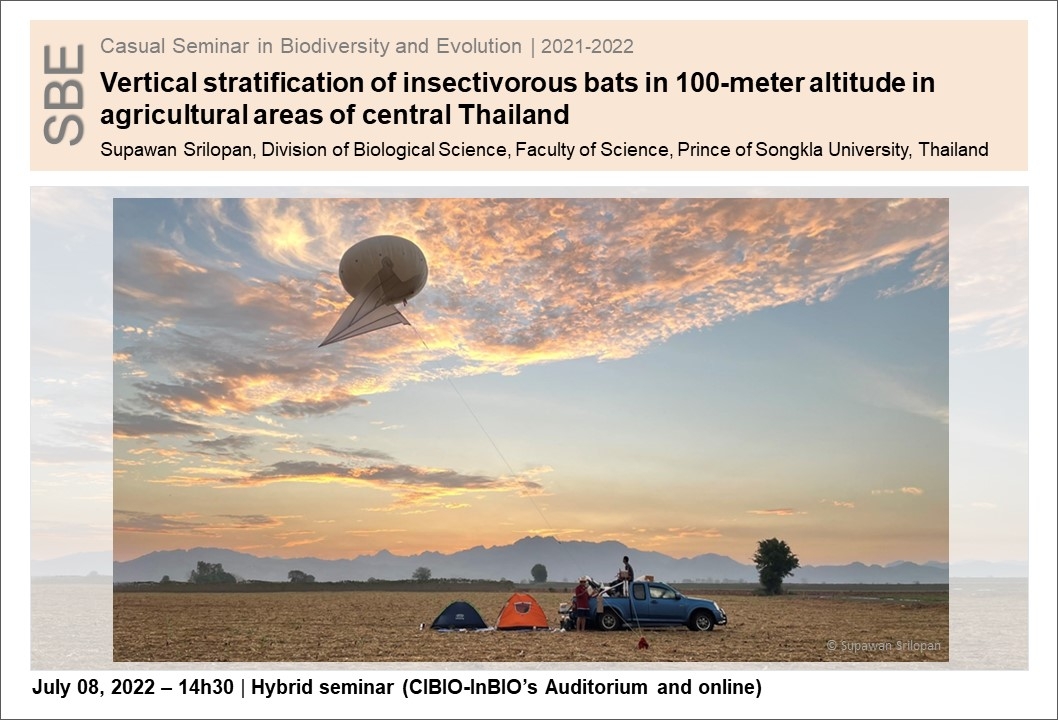Vertical stratification of insectivorous bats in 100-meter altitude in agricultural areas of central Thailand
08 Jul 2022 - Supawan Srilopan, Division of Biological Science, Faculty of Science, Prince of Songkla University, Thailand | 14h30 | Hybrid seminar

CASUAL SEMINAR IN BIODIVERSITY AND EVOLUTION
Insectivorous bats have been suggested to be one of the most effective natural suppressors of pest insects in agricultural landscapes. However, most bat monitors have been restricted to activity occurring close to the ground. Here, this study focused on the foraging activity of insectivorous bats in response to altitudes and habitats in central Thailand. Bat echolocation at approximately 2 m, 25 m, 50 m,75 m, and 100 m above ground levels was recorded by using AudioMoth bat detectors which were attached to a helium-filled balloon-kite, in three land-use types (i.e., forests, agricultural areas, and water bodies). The results show that bat activity was significantly different among altitude levels and habitats. The total number of bat passes in agricultural areas and water bodies were higher than in forests while the activity of bats was highest at 2 m above the ground. These findings suggest that insectivorous bats predominantly forage in different vertical strata and habitats because foraging behavior is closely linked to wing morphology and echolocation call structure. Our results indicate that many insectivorous bats forage at high altitudes in agricultural areas. Understanding the habitat of high-altitude foraging bats is urgently needed and vital for bat conservation.
Supawan Srilopan is currently in the 3rd year of her Ph.D. study in Biology Program at Prince of Songkla University (PSU), Thailand. She was granted a scholarship from the Royal Golden Jubilee (RGJ) Ph.D. Program, National Research Council of Thailand (NRCT). Her Ph.D. thesis title is ‘Resource partitioning of aerial insectivorous bats in agricultural areas of central Thailand’, there are three parts in her thesis: (1) diet partitioning of aerial insectivorous bats by DNA metabarcoding; (2) vertical stratification of insectivorous bats in 100-meter altitude; and (3) foraging distance and altitude of the Wrinkle-Lipped Free-Tailed Bat by GPS tracking. Prior to her Ph.D. study, she graduated with a Bachelor’s degree in Biology at PSU in 2012, focusing on habitat use of the insectivorous bats by acoustic monitoring. In 2018, she received the degree of Master of Science in Ecology from PSU, where she studied diet of the wrinkle-lipped free-tailed bat in central Thailand.
[Host: Vanessa Mata, Bat Ecology - BATECO, Applied Ecology - APPLECOL]